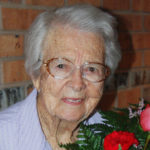For eight and a half years, Jacob West has been pastor of First Baptist Church in Stamford, located about 40 miles north of Abilene and famous for the Texas Cowboy Reunion. He and his wife, Emily, live there with their three children, Ellie, 7; Ryan, 5; and Natalie, 2.
From deep in the heart of one Texan, West shares his background and thoughts on church and ministry. To suggest a Baptist General Convention of Texas-affiliated minister to be featured in this column, or to apply to be featured yourself, click here.
Background
• Where else have you served in ministry, and what were your positions there?
My first ministry position was at First Baptist Church in Rotan. I served as student minister for five years. In May 2006, I received a call to First Baptist Church in Sweetwater to fill its student minister position.
• Where did you grow up?
I grew up in a family of three boys living in small Concho Valley towns. My family lived in Ballinger, Eden and Sonora as my father served with state and county law enforcement offices.
• How did you come to faith in Christ?
Faith for me started with my parents and grandparents teaching me about God’s love from an early age. My father and mother took us to worship and Sunday school classes regularly at First Baptist Church in Eden. My twin brother and I actively participated in Mission Friends and Royal Ambassadors.
Sign up for our weekly edition and get all our headlines in your inbox on Thursdays
The moment of repentance and following Jesus happened in my bedroom with no one around. This was a rare moment of solitude for a 9-year-old twin. I simply prayed, “Jesus, come into my life.” It was the first time I ever prayed something like this, and I believe God heard the prayer and honored my request. A couple weeks later, Bro. Mike Harkrider baptized me.
• Where were you educated, and what degrees did you receive?
Hardin-Simmons University has provided everything I have educationally. I arrived at HSU in August 2000. After graduating with a bachelor’s degree, I then sought the master of divinity degree from HSU’s Logsdon Seminary. Logsdon’s doctor of ministry program started soon after I graduated, and I entered the program in August 2010. I walked the stage in Behrens Auditorium as the program’s second graduate in May 2013.
Ministry/church
• Why do you feel called into ministry?
I feel called to the ministry because God made it clear that’s what I should do. I felt strongly impressed while in high school that serving the local church is what I should do with my life. The pull of this call was inescapable as I considered other career paths. The night I committed to God’s call was a pivotal night in my life. I remember it vividly 17 years later.
• What is your favorite aspect of ministry? Why?
My favorite aspect of ministry is that it is God’s redemptive instrument. The broad work within Christian ministry gives light to the narrow path to our Savior.
• What one aspect of congregational life gives you the greatest joy?
The church’s worship service gives me the greatest joy. Here’s why:
First, FBC Stamford has one service in our rural church. Everyone is together in one room. Children, teenagers and senior adults all worship together. I am completely in favor of multigenerational worship. I admit this requires patience.
Second, our worship activity connects us with past generations. Pastor F.S. Groner, a leader in the Cooperative Program’s founding, led the dedication of First Stamford’s current sanctuary in 1909. When we gather at First Stamford, children worship in the same room as their great-great grandparents.
I could give many more reasons, but the last I will give is the worship service affords the opportunity I have to hold up God’s word before his church. I consider preaching an incredible opportunity. It is hard, challenging work, but it brings great joy.
• What one aspect of congregational life would you like to change?
Some things I have wanted to change the church has already worked with me to alter.
For instance, we changed how much we ask people to commit to on a weekly basis. A person can look up and have eight requests of his or her time on a weekly basis. This should not happen. It is not sustainable. Church leadership and I worked to simplify the schedule and the amount of activity.
As a congregation, we have sought to change the ethnic balance of the congregation. Only 7 percent of churches are multi-ethnic. Most of us participate in a multi-ethnic culture except at church. We are working to change this.
• If you could launch any new ministry—individually, through your congregation or through another organization—what would it be? Why?
I try to pay attention to what God persistently brings before me. What I am seeing right now is the alarming growth of people struggling with addiction. We cannot logistically relocate a significant percentage of the town to rehab centers 40 miles away. Folks looking for help walk into the office, text me and reach me through social media. The reach for help shows me many, and probably most, people do not want to live as addicted citizens. I can offer prayer and dialogue, but the situation demands more. I recently discussed with other Stamford ministers how to approach this. My personal target date is to have a program or ministry operational by next autumn.
About Baptists
• What are the key issues facing Baptists—denominationally and/or congregationally?
A key issue facing Baptists is patience. I once listened to a recorded sermon from Dr. George Truett on patience. I never heard a person repeat “patience” in a sermon more than Pastor Truett offered in that message. The Apostle Paul listed patience among the fruit of the Spirit, and we need patience with one another as a person matures, develops his or her personal theology, and determines how best to love one another.
About Jacob
• Who were/are your mentors, and how did/do they influence you?
Mentors for me include my father and Ken Lyle Sr. Ken, a retired denominational leader and pastor, adopted me as my field supervisor in the doctor of ministry program. It was the first time I met with someone on a regular basis to discuss life in ministry. We met for two years, and I pray often that God would allow Ken’s love for people to appear in my ministry.
My dad, Joe David West, provided stable, consistent leadership for our family. He worked in a high-stress job as a state trooper but kept a calm environment for our home. I saw him volunteer in our towns and lead organizations with fairness. He said some things that definitely stuck with me. For instance, a situation arose where I was able to give a sermon at church at a young age. It went well, and the sermon was brief, which everyone loved. A few weeks later, some of my preteen minor acts of rebellion did not correlate with statements I had made in the sermon about the Christian life. Daddy pulled me aside and in a kind but stern manner said something that set me up well for a life in ministry. He said something like, “If you want to be a leader at church, you need to think about your choices.” As a 12-year-old, I hadn’t processed something that seems so obvious. He didn’t mean I would have to be perfect, but that I would have to take care of business. He wasn’t a pastor, but the state trooper side of him knew that if you aren’t careful, even pastors can get in trouble.
• If you could get one “do over” in ministry, what would it be, and why?
Pastors are communicators at multiple levels. I try to prepare a sermon for a mass of people, while also looking for opportunities to visit with people one person at a time. I know there are sermons with mistakes or misunderstandings, but I can’t think of a sermon that caused undue grief. On the other hand, some of the individual conversations definitely brought on some temporary frustration or pain. I would love to have the opportunity to have a handful of conversations from the last two decades over again. Maturity, further training and experience have taught me so much about how to handle almost everything better.
• What has being a lifelong Chicago Cubs fan taught you about ministry?
The easy answer is perseverance, but lessons learned or observations made go further. One of the most incredible experiences in my 35 years was witnessing Harry Caray lead the Wrigley Field faithful in “Take Me Out to the Ballgame” the summer before my freshman year of high school. He leaned over the railing of the broadcast booth and chanted, “A one, a two, a three … Take me out to the ballgame.” I could almost shed a tear thinking about that moment. Perhaps worship leaders and pastors can learn from his ability to get people to participate in a corporate exercise with such joy.
Also, after so long—108 years—the Cubs finally won the World Series this past November. Journalism exploded over the huge story. One journalist asked the players what made the difference in Game 7 turning to the Cubs’ favor after the Indians tied the score late in the game. Many said it was a teammate’s speech in the guest clubhouse voiced during a rain delay. The speech inspired them to take the lead and win the World Series. Let those of us in the communication business never underestimate the power of words.
To read other “Deep in the Hearts of Texans” columns, click here.















We seek to connect God’s story and God’s people around the world. To learn more about God’s story, click here.
Send comments and feedback to Eric Black, our editor. For comments to be published, please specify “letter to the editor.” Maximum length for publication is 300 words.